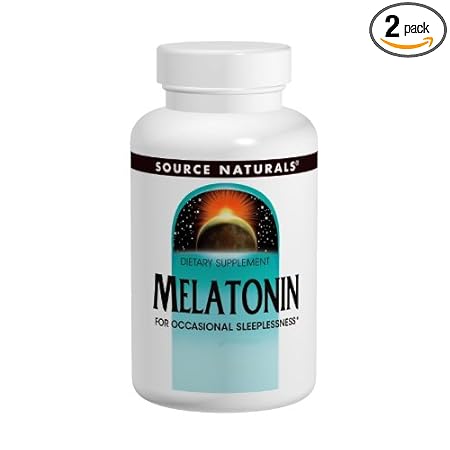Melatonin: Necessary human hormone that decreases naturally with age.
Other uses include: existing Cancer treatment (and possibly slows risk), Memory and Alzheimer Disease, Prostate, Thyroid, ringing in the ears, depression, chronic fatigue syndrome (CFS), fibromyalgia, migraine and other headaches, irritable bowel syndrome (IBS), bone loss (osteoporosis), as an anti-aging agent, for menopause.
http://www.cancer.org/treatment/treatme ... /melatonin[American Cancer Society]
“Researchers at Yale University first discovered melatonin and its connection to the pineal gland in the late 1950s. Its link to sleep and hormonal influences and its possible link to cancer have been studied since that time. Melatonin became available as a dietary supplement in the 1990s. [Many countries require a doctor’s prescription]
“Some recent research has suggested that low melatonin levels in the body may be linked to a higher risk of certain types of cancer….Melatonin has been shown to slow or stop the growth of several types of cancer cells when studied in the laboratory. Whether this same effect occurs in the body is unknown.”
http://www.nlm.nih.gov/medlineplus/drug ... l/940.html
“Melatonin is a hormone found naturally in the body. Melatonin used as medicine is usually made synthetically in a laboratory. It is most commonly available in pill form, but melatonin is also available in forms that can be placed in the cheek or under the tongue. This allows the melatonin to be absorbed directly into the body.
“People use melatonin to adjust the body’s internal clock. It is used for jet lag, for adjusting sleep-wake cycles in people whose daily work schedule changes (shift-work disorder), and for helping blind people establish a day and night cycle.
“Melatonin is also used for the inability to fall asleep (insomnia); delayed sleep phase syndrome (DSPS); insomnia associated with attention deficit-hyperactivity disorder (ADHD); insomnia due to certain high blood pressure medications called beta-blockers; and sleep problems in children with developmental disorders including autism, cerebral palsy, and mental retardation. It is also used as a sleep aid after discontinuing the use of benzodiazepine drugs and to reduce the side effects of stopping smoking.
“Some people use melatonin for Alzheimer’s disease, ringing in the ears, depression, chronic fatigue syndrome (CFS), fibromyalgia, migraine and other headaches, irritable bowel syndrome (IBS), bone loss (osteoporosis), a movement disorder called tardive dyskinesia (TD), epilepsy, as an anti-aging agent, for menopause, and for birth control.
“Other uses include breast cancer, brain cancer, lung cancer, prostate cancer, head cancer, neck cancer, and gastrointestinal cancer. Melatonin is also used for some of the side effects of cancer treatment (chemotherapy) including weight loss, nerve pain, weakness, and a lowered number of clot-forming cells (thrombocytopenia).”









